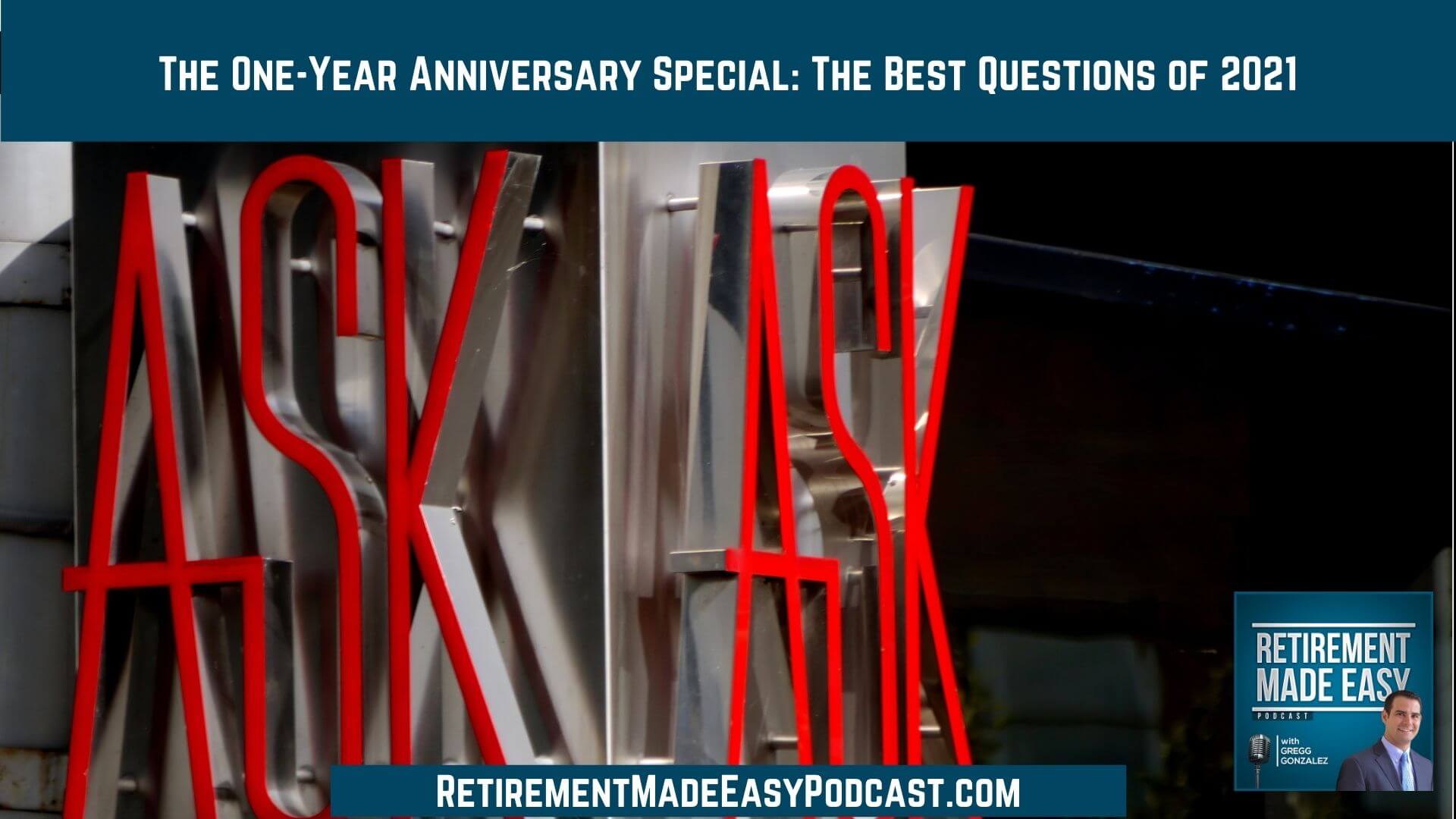
I love when people ask questions! So in this special episode of Retirement Made Easy—and celebrating one year of the podcast—I’m answering five listener questions. If you don’t have a background in financial or retirement planning, I’ll happily answer any question you may have. Just head on over to RetirementMadeEasyPodcast.com and send me a message!
You will want to hear this episode if you are interested in…
- [2:55] Don’t be afraid to ask me a question!
- [6:08] Question #1: How to handle inherited IRAs
- [8:57] Question #2: Should you invest all of your accounts the same way?
- [12:45] Question #3: How do you roll over a 401k?
- [14:37] Question #4: How do you help your kids start Roth IRAs?
- [16:42] Question #5: Should you purchase whole life insurance?
- [19:42] Don’t take all of the advice you’re given by family + friends
Question #1: How do you handle an inherited IRA?
The gentleman that asked this question was told that the IRA he had inherited from his father had to be kept with the current custodian for 10 years. He was told after 10 years he could withdraw the money. That’s NOT how inherited IRAs work!
You can move the inherited IRA to any custodian that you’d like (i.e. from Fidelity to Charles Schwab). You can also control how it’s invested. You can move from a conservative strategy to a moderate or aggressive portfolio that fits your risk tolerance. You call the shots.
For someone whose parents passed away after January 1st, 2020, you have 10 years to take distributions out and pay the taxes on the IRA. So if you inherited $100,000, you could take distributions of $10,000 per year. You can’t wait until the end of 10 years.
Question #2: Should you invest all of your accounts the same way?
Should you invest all of your accounts the same way? This particular listener, Jenny, has a trust account, Roth IRA, regular IRA, and a 401k (4 different accounts). Without knowing much about Jenny, my advice is that a non-retirement account needs to be invested tax-efficiently. That account could cause you to pay capital gains taxes, dividends, taxes on interest, etc.
Most 401ks have limited investment options. Because of this, I don’t recommend investing in a Roth IRA/IRA like a 401k. Another thing to consider is your goals for each account. If you want to leave an account for a child, a long-term aggressive approach may be best. You might consider the other accounts as resources for your own retirement. Perhaps you need them to produce an income to supplement your pension and social security. You’d take a moderate approach with those accounts. How you invest the money must match your goals.
Question #3: How do you roll over a 401k?
How do you roll over a 401k to a new company? This listener was given the impression that they’d get a 6% match at their new company (dollar-for-dollar). They thought the $1 million 401k they were rolling over would be matched with $60,000. That is not how that works. A company 401k doesn’t match rollover dollars. However, they would match contributions up to 6% of your pay. If you make $100,000 and contribute $6,000 they will match the $6,000. They won’t match anything over and above that—including a rollover.
Question #4: How do you help your kids start Roth IRAs?
To get a Roth IRA, you need earned income. So your child would need to have a job in order to contribute. They could contribute up to $6,000 to a Roth IRA. So a 16-year-old with $2,000 of earned income is eligible to contribute $2,000. It’s a great way to show your children the value of saving and investing their money (and what it means for them years down the road). The money in that Roth IRA will grow tax-free all those years!
To hear my answer to the last question (about purchasing whole life insurance) listen to the whole episode of Retirement Made Easy!
Connect With Gregg Gonzalez
- Email at: Gregg@RetireSTL.com
- Podcast: https://RetirementMadeEasyPodcast.com
- Website: https://StLouisFinancialAdvisor.com
- Follow Gregg on LinkedIn
- Follow Gregg on Facebook
- Follow Gregg on YouTube



